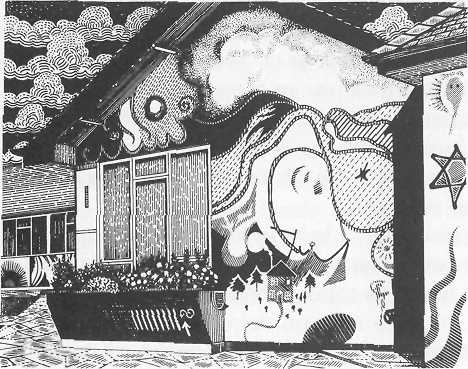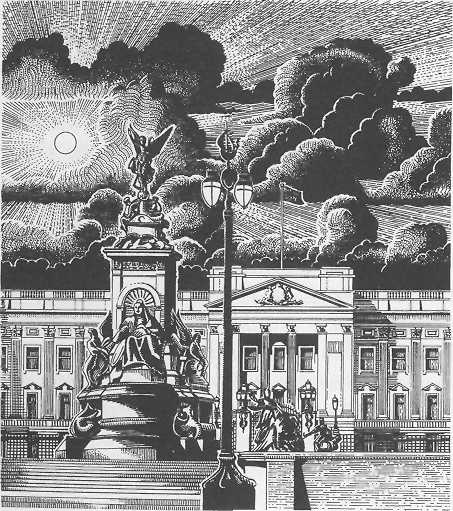
- •Introduction
- •Foreword
- •1 Wrote the first piece without consulting him much about the content, promising him that he could see it before it was published. I had talked to him
- •In the weeks that followed, we sustained the weekly column, properly as a duet; I cannot recall who wrote what, but it was his column and I was always
- •It in front of the kitchen fire and then fill it from pans and kettles with hot water. Good place to wash your hair, Liverpool. Nice soft water.
- •It moulded us into being frightened. There was a rot which set in. They say that children will learn something if it is exciting, but when
- •In Liverpool and we are still moving in and out of happy reminiscences of childhood. He is, however, soon to leave Liverpool for the first trip to Hamburg.
- •Chapter II
- •1 A New York attorney, manager and now owner of his own record company. At the end of Brian's life, Nat was his closest friend and confidante.
- •1 Dominic Taylor, youngest son of Joan and Derek Taylor.
- •Chapter III
- •Chapter V
- •Olivia Harrison
- •Chapter VI
1 A New York attorney, manager and now owner of his own record company. At the end of Brian's life, Nat was his closest friend and confidante.
the Beatle details, give the sort of care which had at first lifted them just those inches above their Liverpool origins and contemporaries, and allowed them to shine on most of the available world.
His death was sudden, shocking and almost certainly accidental. He drank too much (quite a few of us did) and he took too many drugs (again, so did others among us—in those days) and he died of a combination of both. An open verdict was returned at the inquest, there was no presumption of suicide then, or now. I raise the word only to lower it, and maybe to bury it. It happens every day. End of sermon.
Things happened quickly after we moved to London. Kingo and 1 moved from the first flat to another, better one downstairs, and then moved to Whaddon House, to the flat below Brian's, because we couldn't get the lease renewed in Green Street because of all the litter caused by fans and because of the fans themselves. The fans, all shapes, all manner of humanity, were everywhere. We couldn't get In and out.
I had met Pattie by this time and she was with me in Whaddon House, and after a time we moved to Esher because I had to get out of town. That was when the novelty of being popular wore off.
George saw that it was time to escape and moved to Esher (which became a Monty Python joke town representing so much that was post-fifties, thrusting,

property-Lopins merchant-
Tory-voting
London Britain) because
the Beatles' accountant
lived in Weybridge nearby,
and had found him a
house.
It was the first one I saw, thought 'that'll do', moved in and then Ringo and John came
down that way, both in St. George's Hill, helping to make St. George's Hill worth what it is today. Pattic and I "were married and stayed in Esher until 1969. The house there on the Claremont Estate was really an extension of living in London except that it was outside and it had a wall round it which was necessary.
Necessary. Everywhere the Beatles lived in the nimteen-sixties, everywhere their parents lived, everywhere they had offices or their officers had offices,
( ' у i/ jj jj ->-■ '
everywhere they made films or records, wherever they spent their leisure or were rumoured to spend it, was surrounded, attended, placed under 24 hour surveillance by fans. They were mainly, but not all, young people, the bard core were the people who were buying, the records but there were a lot of loonies in there too, attending the concerts, screaming in their tens of thousands at the airports. As the years passed the numbers dwindled, inevitably, but well into the nineteen-seventies the central core remained, outside the Apple offices, and outside EMI studios and they became known {their own name for themselves) as the Apple Scruffs. We were all very fond of them and George wrote a song for them, and included it on an album.
But in the hey-day, the mad days, the presence of the fans in vast swarming buying numbers made the living of normal lives impossible. As George has said, by таби the novelty of being, famous had worn off. He was not to enjoy the fame in the same way again.
In a nutshell, if you get all that persecution of being born in a war, vibrations like that to set you on your way wondering what it's all about, you can see where it all comes out. I mean in your dreams. You know, "when the day (or life) winds you up, relax with a cup of Ovaltine". So it's the unwinding of your nervous system. The corresponding experience to what winds you up comes out in your dreams. To write a song then, even one like Don't Bother Me, helps to get rid of some subconscious burden. Writing a song is like going to confession. That was also the result of the lsd really, writing songs to try and find out, to see who you are.
I have asked myself what right I have to write a book, this book, I Me Mine. It is a medium I suppose and we either do it well or do it badly. What right have I to think I should even be saying this ? All you can do in the end is to keep on doing the best you can for yourself. You can't control anything. You have to guard things the
36
best way you can but there is nothing much you can do, except to try to keep unattached.
In 1969, George and Pattie moved into a beautiful, Gothic house and park in Oxfordshire, of which more later. This move brought him a relationship with the mind of the man mho designed the house and created the gardens, Sir Frank Crisp, a kindly, brilliant, errant and eminent Victorian baronet of whom George frequently talks as if he were alive.
Sir Frank helped my awareness; whatever it was I felt became stranger, or found more expression by moving into that house, because everything stepped up ot was heightened.
The climb, because it was all bigger stakes, was difficult. I mean, it just didn't stop. There were disasters all around at that time. Some were great, some were awful, some were drawn out, painful, miserable. Some wete not disasters after all, but the thing about Sir Frank with his advice, like: 'scan not a friend with a microscopic glass . . .' I mean that helped me actively to ease up on whomsoever I thought I loved, gave me that consciousness not to hang on to the negative side of it, to be more forgiving.
George, blessed or cursed with his exact, detailed, long, long memory, recalls all deeds, good and ill, committed, omitted, by, for and against him and his loved ones and frequently his first response is to attack. Yet, over the years, the solid decency of his childhood reinforced by his search for self-realisation, and much supported by the wry, warm little mottoes, either carved in the stone and wood or scattered in the gardens by Sir Frank, have all assisted George to seek another n>ay around an inclination to grumpiness.
I was only letting out agony. I have also been grumpy at times because there were a lot of things we had to do collectively that didn't grab me personally (in Beatle days) that deeply. There was never anything, in any of the Beatle experiences really, that good; even the best thrill soon got tiring. You don't really laugh twice at the same joke, do you, unless you really get silly. Anyway, when you suffer it makes you grumpy.
George has never been short of friends, from all over the world, from all
37
manner of professions and skills and sometimes from nothing that one could identify as ca background' but simply from a recounition.
There is a lecture where Yogananda was talking In 1939 in a Self-Realisation Fellowship book about friends explaining that the vibrations the soul sets up, and the love and equally the hate we feel causes the attraction of souls to one another—from one life to another. Those people who you know much more easily or more quickly are people whom you've known in other lives. It is very specific. There's more to this than meets the eye. It's like Dominic1, he always seemed very familiar. It's great when you can spot them straight off. He's the first person I've seen all the way through from birth who I felt I knew straight away.

There was more good than evil in being a Beatle but It was awful being on the front page of everyone's life, every day. What ah intrusion into our lives. Remember when John said we had smoked a reefer in Buckingham Palace ? What really happened was that it was the Palace, and it was heavy with those big rooms and all the guards and lines and lines of people and such seriousness and the guards were drilling us. They were saying: "OK, you come along here and you do this and then you stop and then you bow. Then you walk forward and then you bow and then you know you don't say
